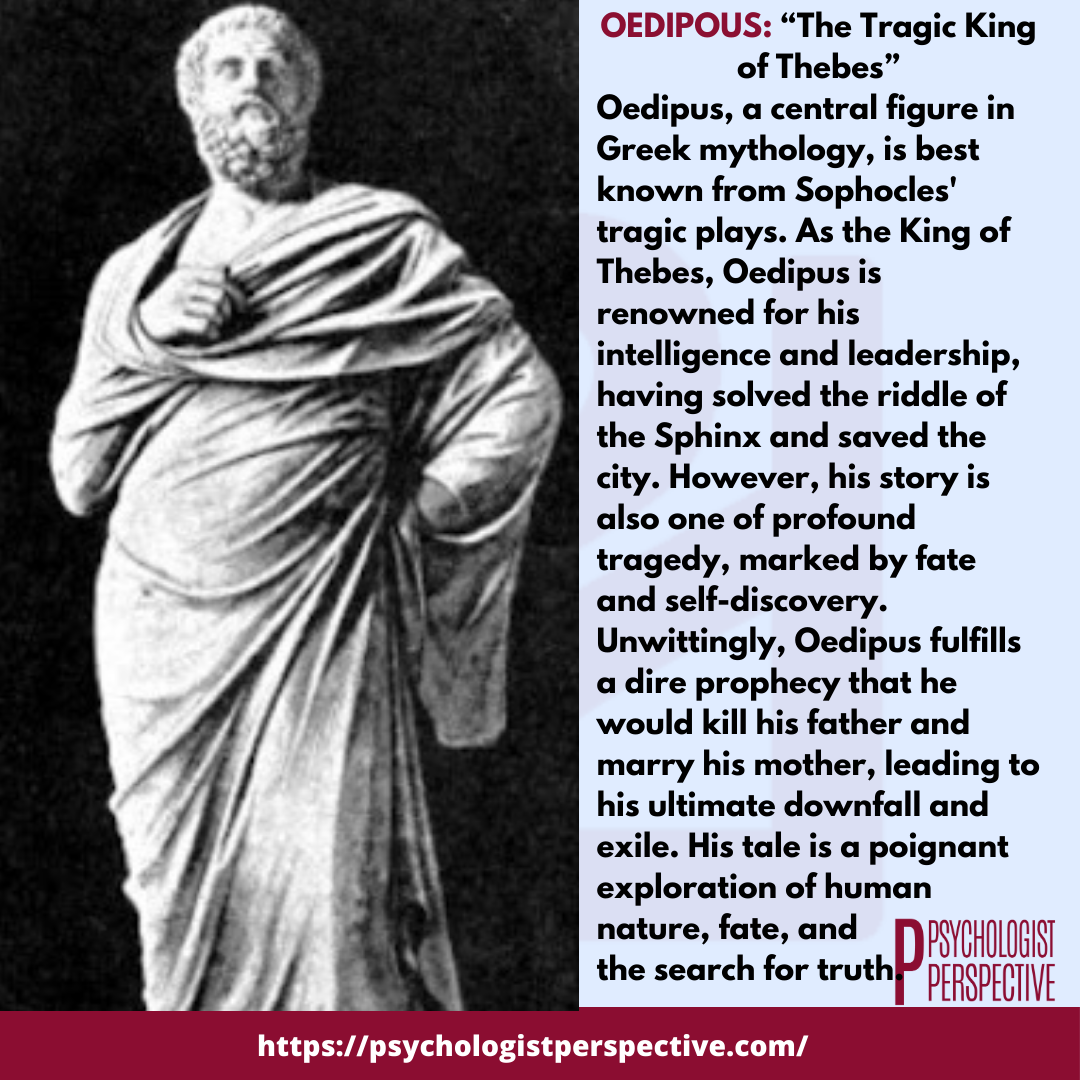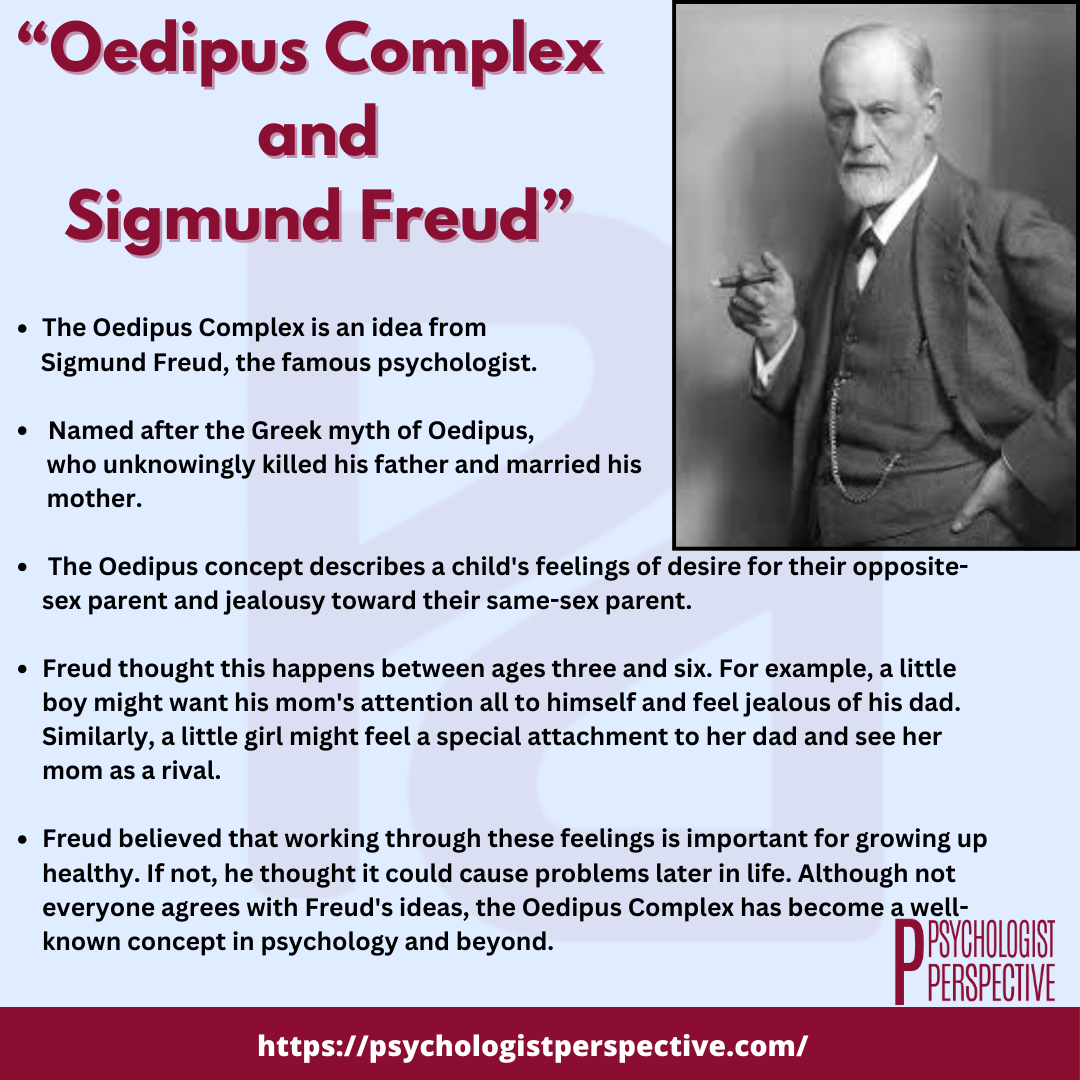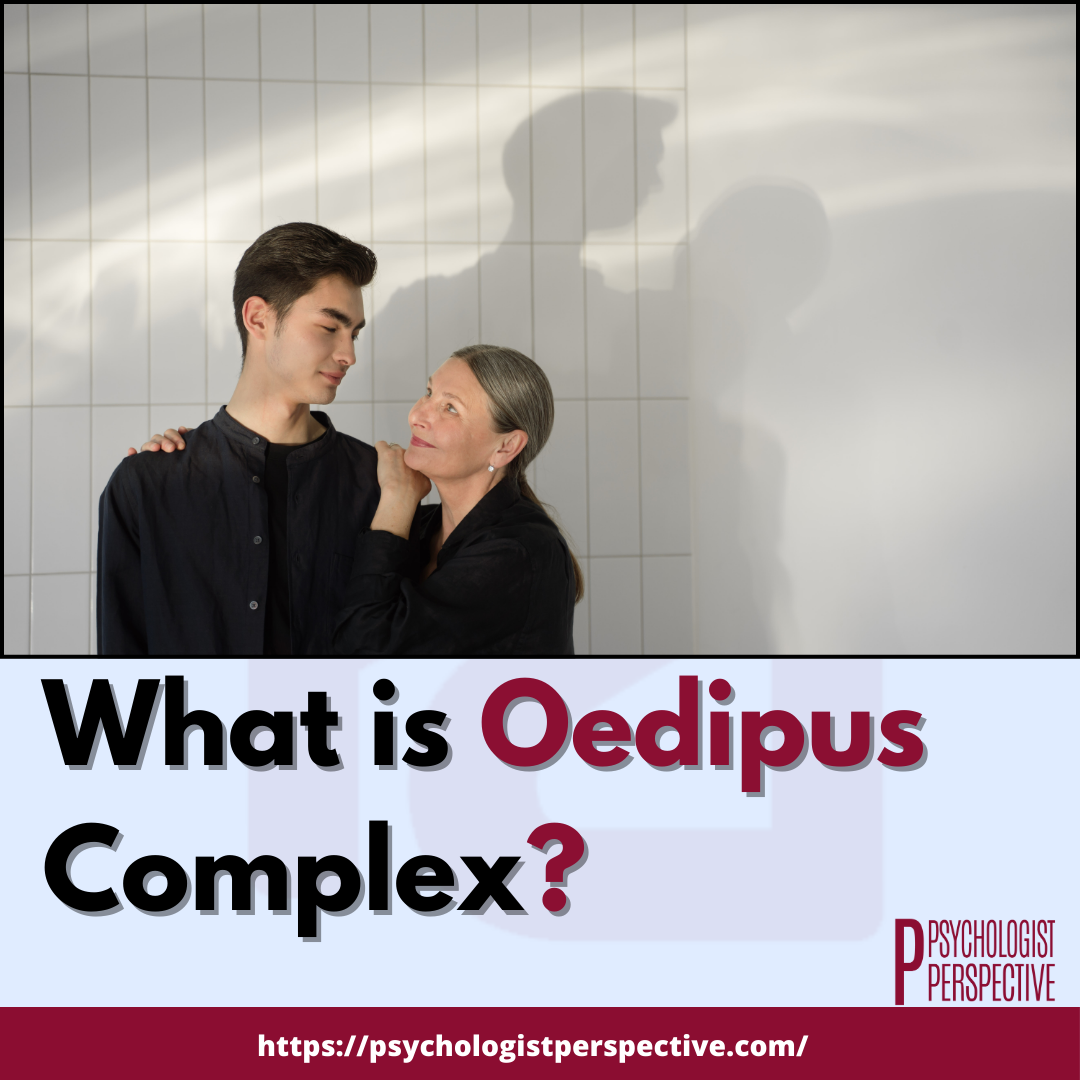What is Oedipus Complex?
Curious about the Oedipus complex and what it’s all about?
In this section, we’ll dive into this fascinating concept introduced by Sigmund Freud.
The idea of children feeling attraction towards the parent of the other gender and how it shapes our relationships and behaviors. So, grab a cup of coffee and let’s unravel the mysteries of the Oedipus complex together
The Oedipus complex is a concept introduced by the famous psychoanalyst Sigmund Freud in his theory of psychosexual development. This complex is named after the Greek mythological figure Oedipus, who unknowingly killed his father and married his mother. Freud believed that this myth reflected a universal psychological phenomenon that occurs during a child’s development.
Who exactly was Oedipus?
In Greek mythology;
Oedipus was a tragic hero who unknowingly fulfilled a prophecy that he would kill his father and marry his mother. Oedipus was abandoned as a baby by his parents, King Laius and Queen Jocasta, because of a prophecy that he would grow up to kill his father. However, Oedipus was rescued and raised by a different family, never knowing his true origins.

As he grew older, Oedipus learned of the prophecy and set out to avoid it by leaving his adopted family. On his journey, he encountered his real father, King Laius, and unknowingly killed him in a fit of rage. Oedipus then continued his journey and eventually arrived in the city of Thebes, where he solved the riddle of the Sphinx and was hailed as a hero. As a reward, he was made king and married the widowed Queen Jocasta, not realizing that she was his mother.
Oedipus Complex and Sigmund Freud
Freud used the story of Oedipus to explain his theory of the Oedipus complex, which he believed was a crucial stage in a child’s psychosexual development. According to Freud, the Oedipus complex occurs during the phallic stage of development, which typically occurs between the ages of 3 and 6 years old. During this stage, children become aware of their own bodies and develop sexual feelings towards their opposite-sex parent.
Freud (THE FOUNDER OF PSYCHOANALYSIS) argued that:
boys experience the Oedipus complex by developing sexual desires for their mothers and feelings of jealousy and hostility towards their fathers. Boys may also fear that their fathers will punish them for these feelings, leading to a sense of guilt and anxiety. Girls, on the other hand, experience a similar phenomenon known as the Electra complex, in which they develop sexual desires for their fathers and feelings of jealousy towards their mothers.

Freud believed that the resolution of the complex was crucial for healthy psychological development. If the complex is not successfully resolved, it may lead to psychological issues, including
- Anxiety,
- Depression
- Relationship problems.
Freud also argued that the complex played a significant role in shaping an individual’s personality and behavior throughout their life.
Despite its controversial nature, the concept of the Oedipus complex remains a key component of Freudian psychoanalytic theory. While some critics have argued that the Oedipus complex is outdated and overly focused on sexual desires, others believe that it provides valuable insights into the complexities of human development and relationships.
In conclusion, the Oedipus complex is a complex psychological phenomenon that plays a significant role in Freudian psychoanalytic theory. Named after the Greek mythological figure Oedipus, this concept explores the ways in which children develop sexual desires for their opposite-sex parent and feelings of jealousy towards their same-sex parent. While the Oedipus complex remains a controversial and debated topic, it continues to be a key aspect of psychoanalytic theory and provides valuable insights into the complexities of human development.


